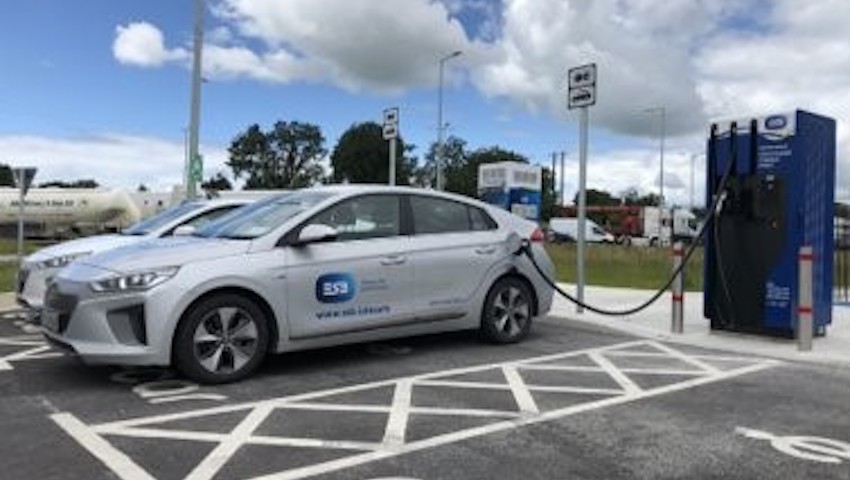ESB Charging confirms plans to expand charging network
As part of an overall investment programme to meet Northern Ireland’s growing demand for electric vehicles, and to support the delivery of net zero emissions, charging provider ESB has announced the introduction of pay-for-use for its public electric vehicle (EV) charging network.
ESB will be introducing pay-for-use across its public chargers in Northern Ireland from 26th April.
In an effort to ensure efficient use of charge points, the changes brought in include overstay charges – with an £8 fee for over 45 minutes at a rapid charge point, or for over 10 hours 22kw charge points.
The new pricing structure will support ESB in undertaking necessary EV network upgrade work in Northern Ireland as part of a £10m investment programme.
As part of the upgrades, ESB plans to double the number of existing charge points, introduce contactless payment on all new rapid and high power chargers (>150kW), and all existing fast (22kW) and rapid (50kW) EV chargers across Northern Ireland will be replaced with the “fastest, most reliable and advanced technology available.”
£3.27 million of the £10 million investment, from the Levelling Up Fund and will see the introduction of high-power (200kW) charging through the delivery of five high-power charging (200kW) hubs in strategic locations. These high-power charging hubs can charge multiple vehicles simultaneously and can provide an EV with 60 miles of range in as little as six minutes.
“To meet the growing number of EVs on our roads, and support the delivery of clean and affordable energy, we need to ensure we have a reliable, accessible, Northern Ireland-wide public charging network,” said John Byrne, Head of ESB ecars.
“Pay for use for public charging is now the norm across GB and Ireland. This is a natural step in ensuring we improve the network and maintain high standards for EV drivers into the future.
“In the coming years as more people will be making the switch to fully electric or hybrid vehicles, it is imperative that we are able to provide drivers with the support they need.
“This includes the introduction of an overstay fee, widely supported by current drivers, which will help establish an acceptable etiquette for users to follow.”
